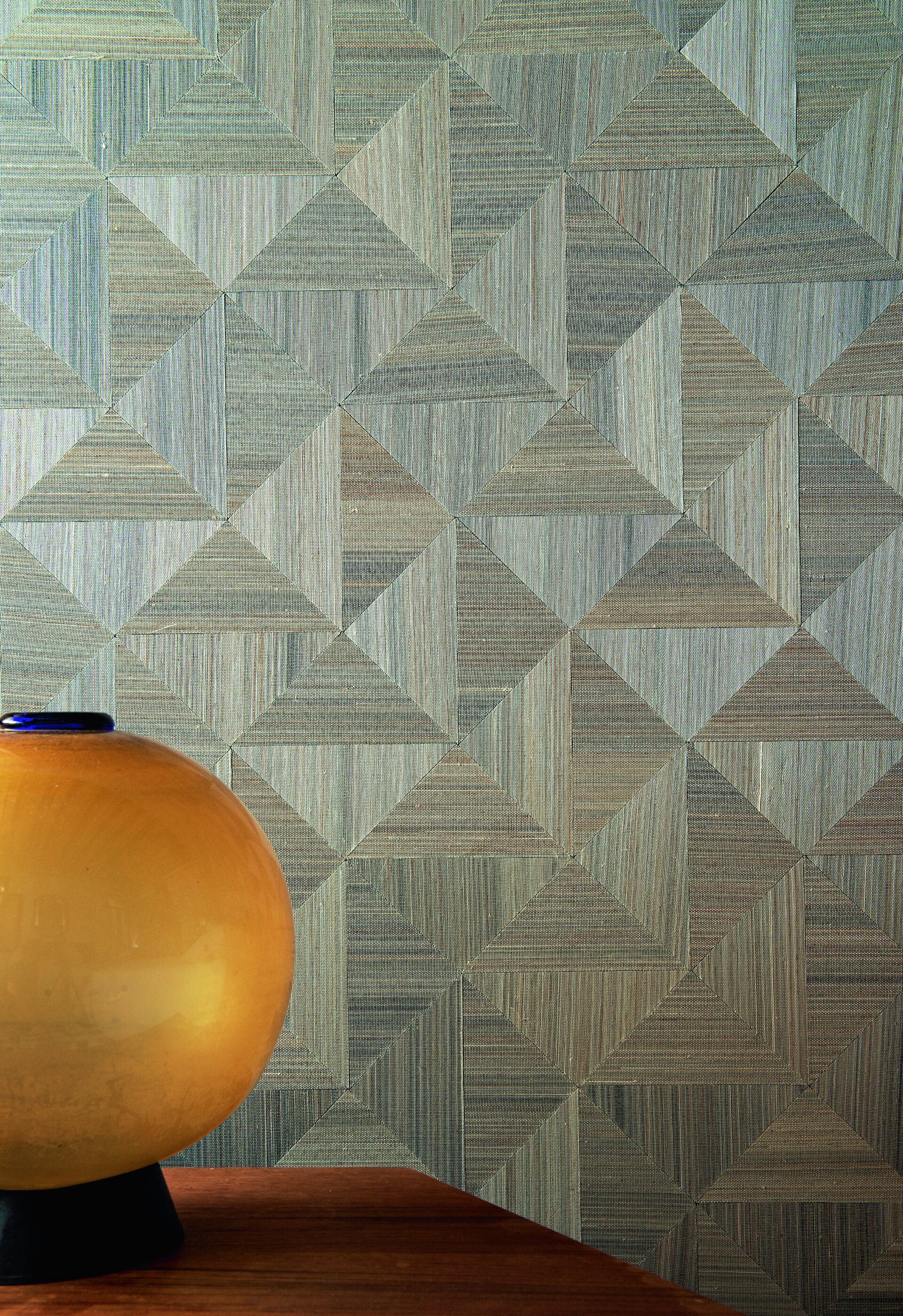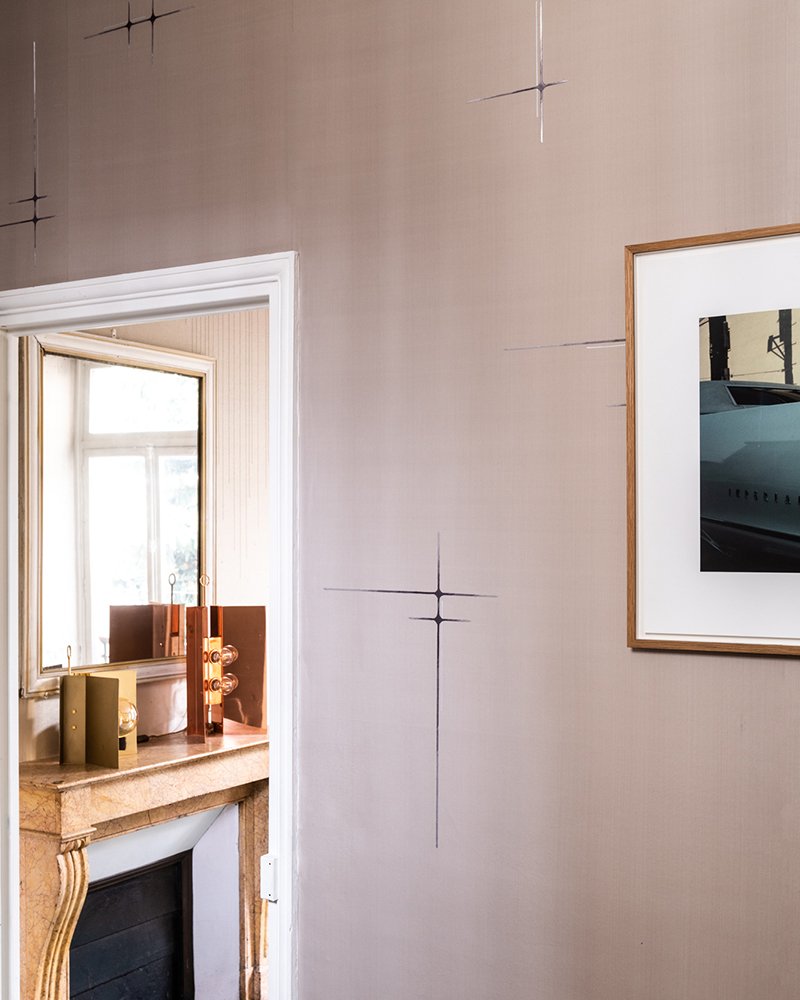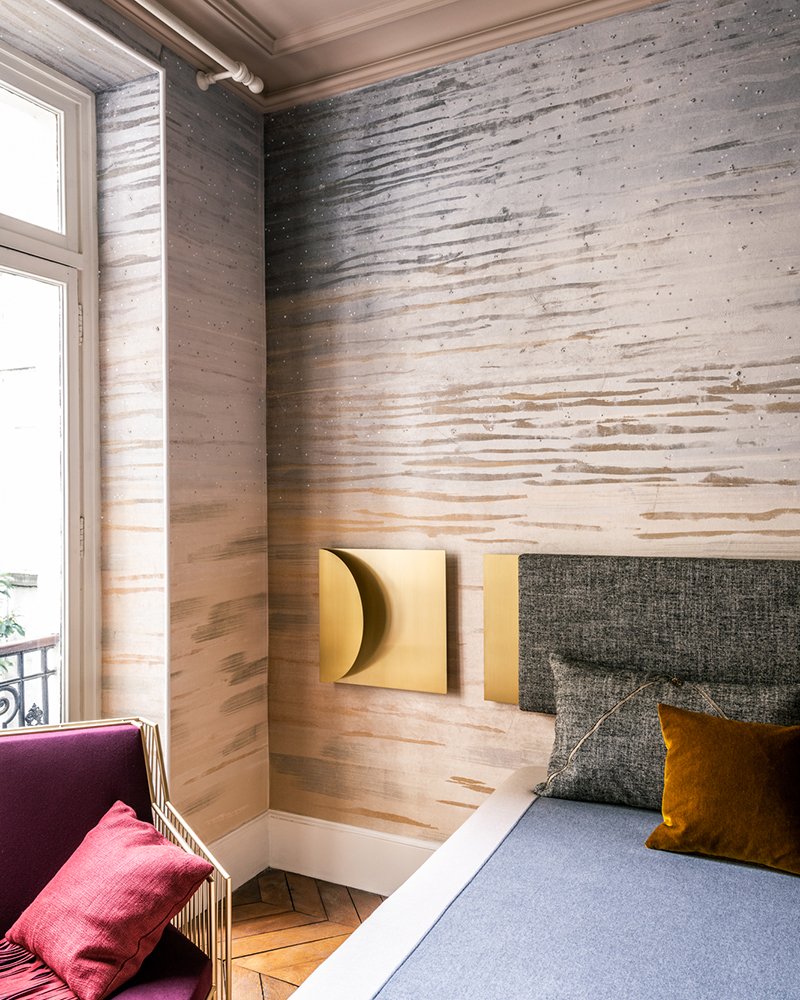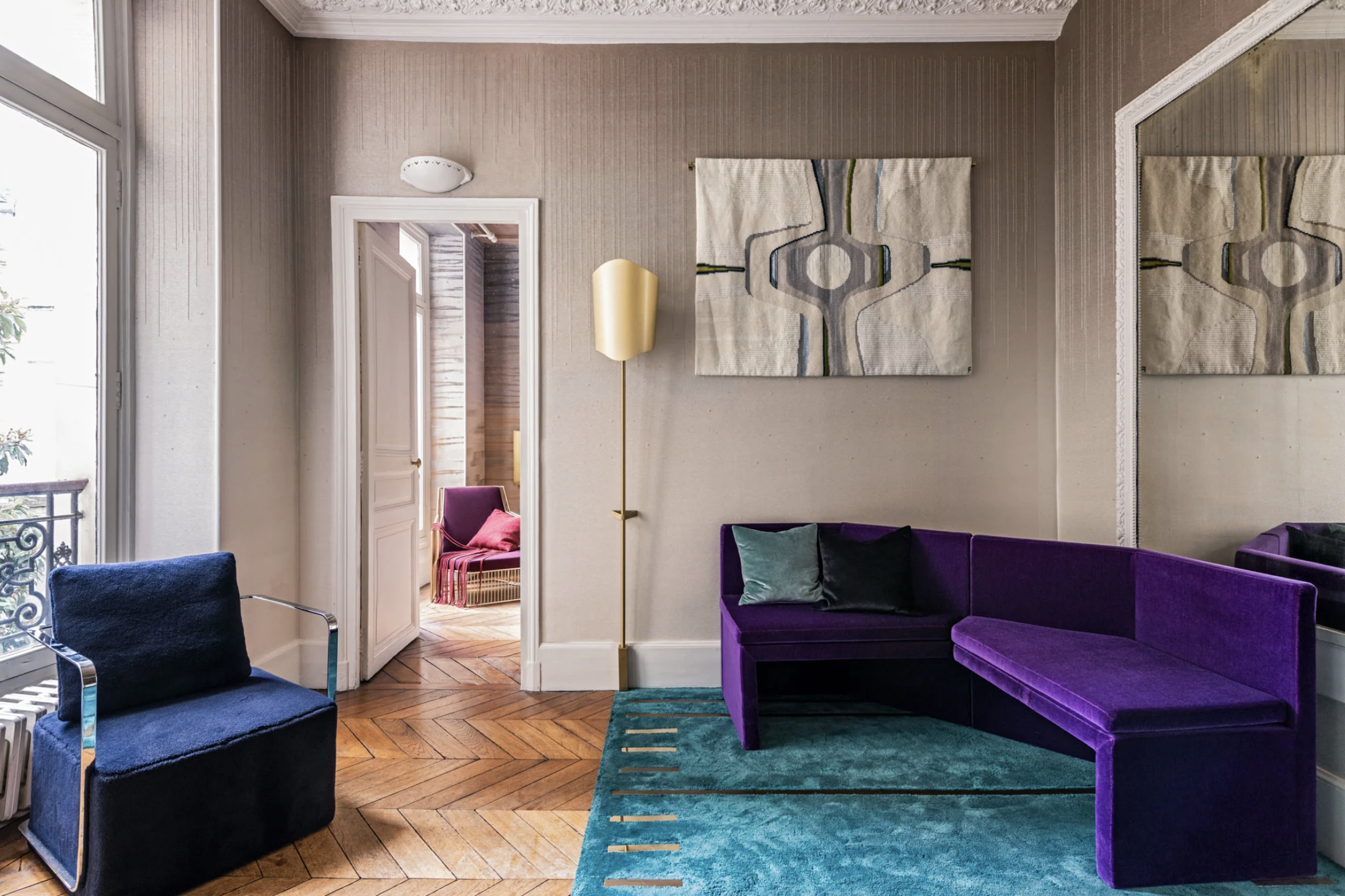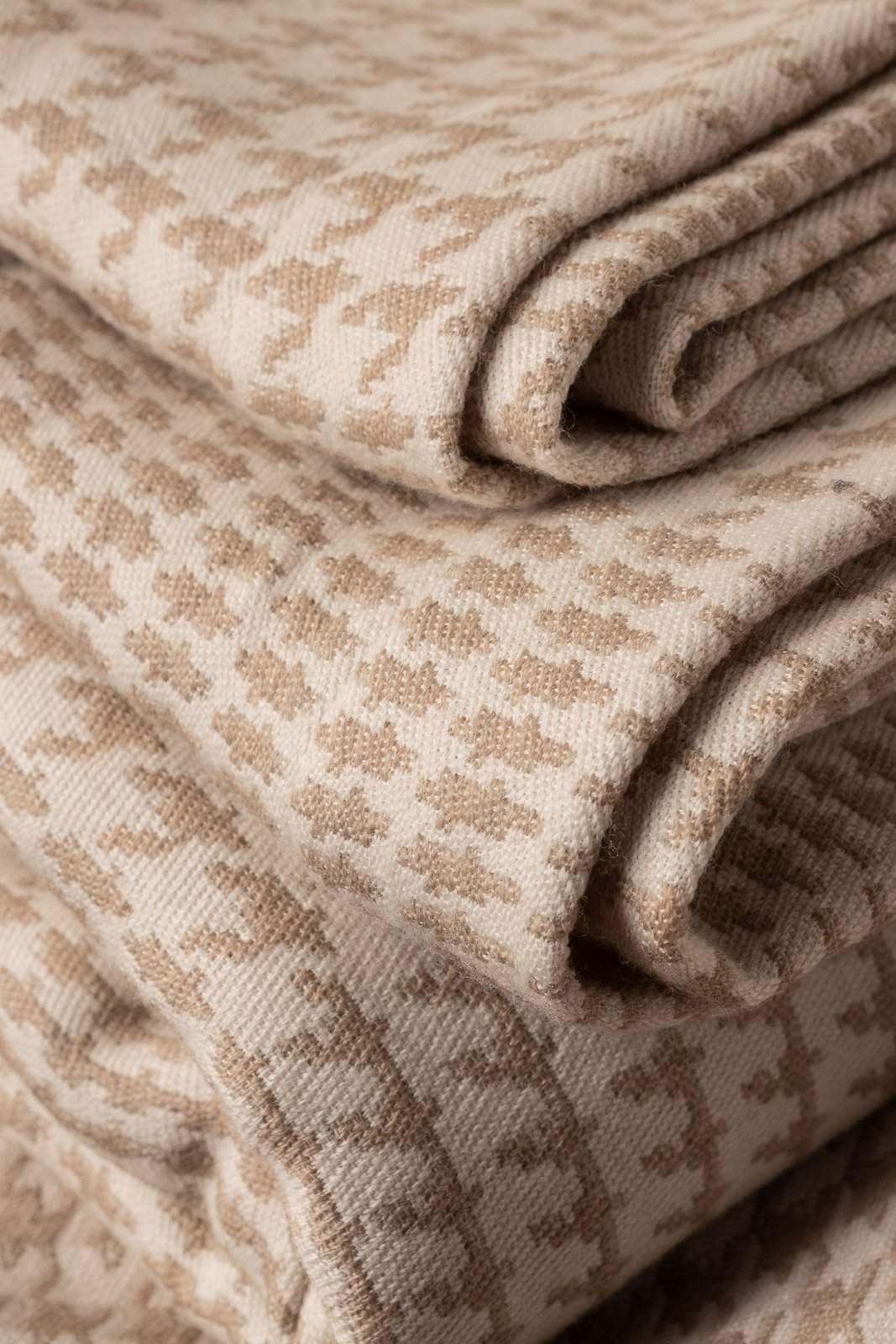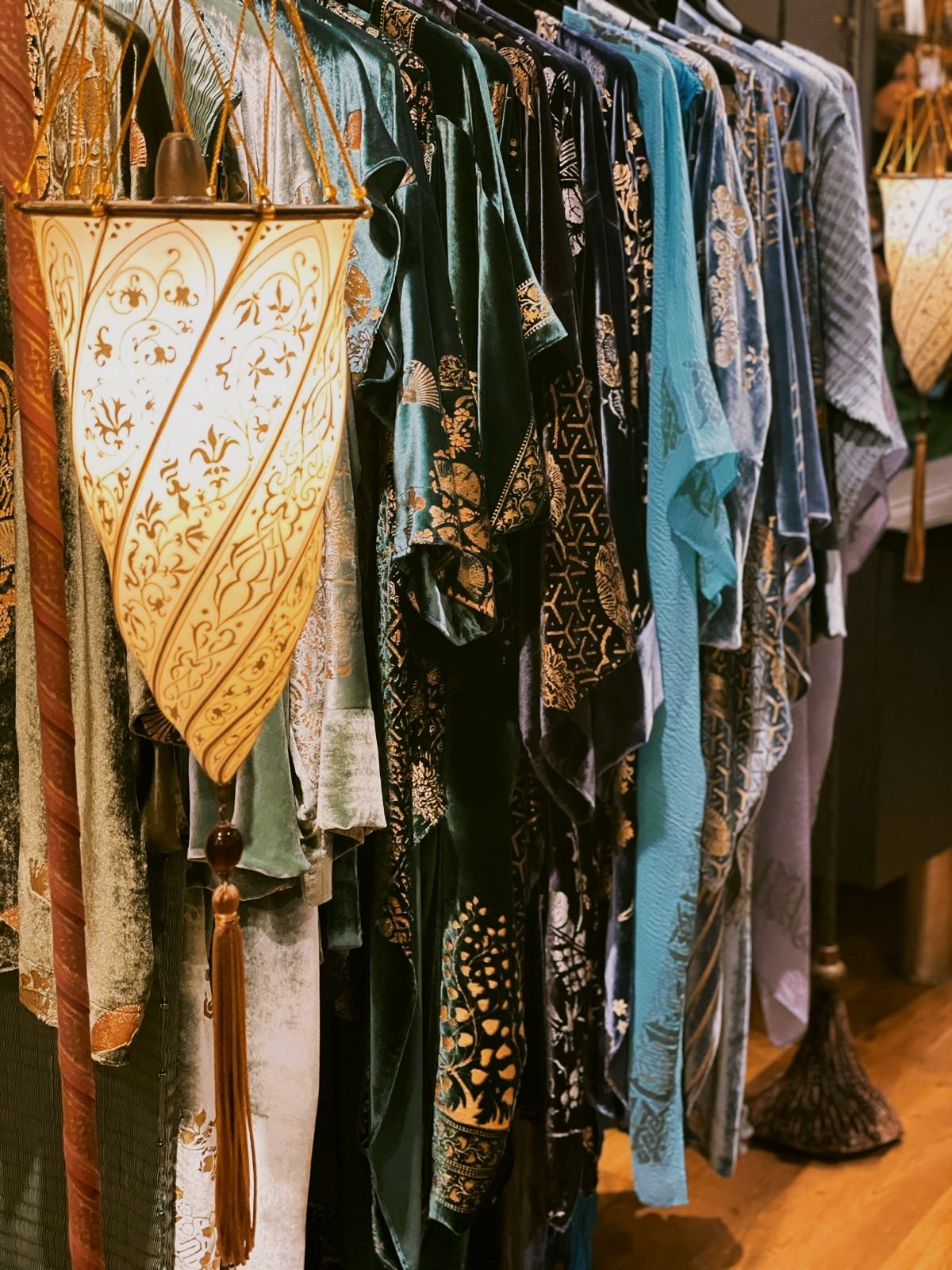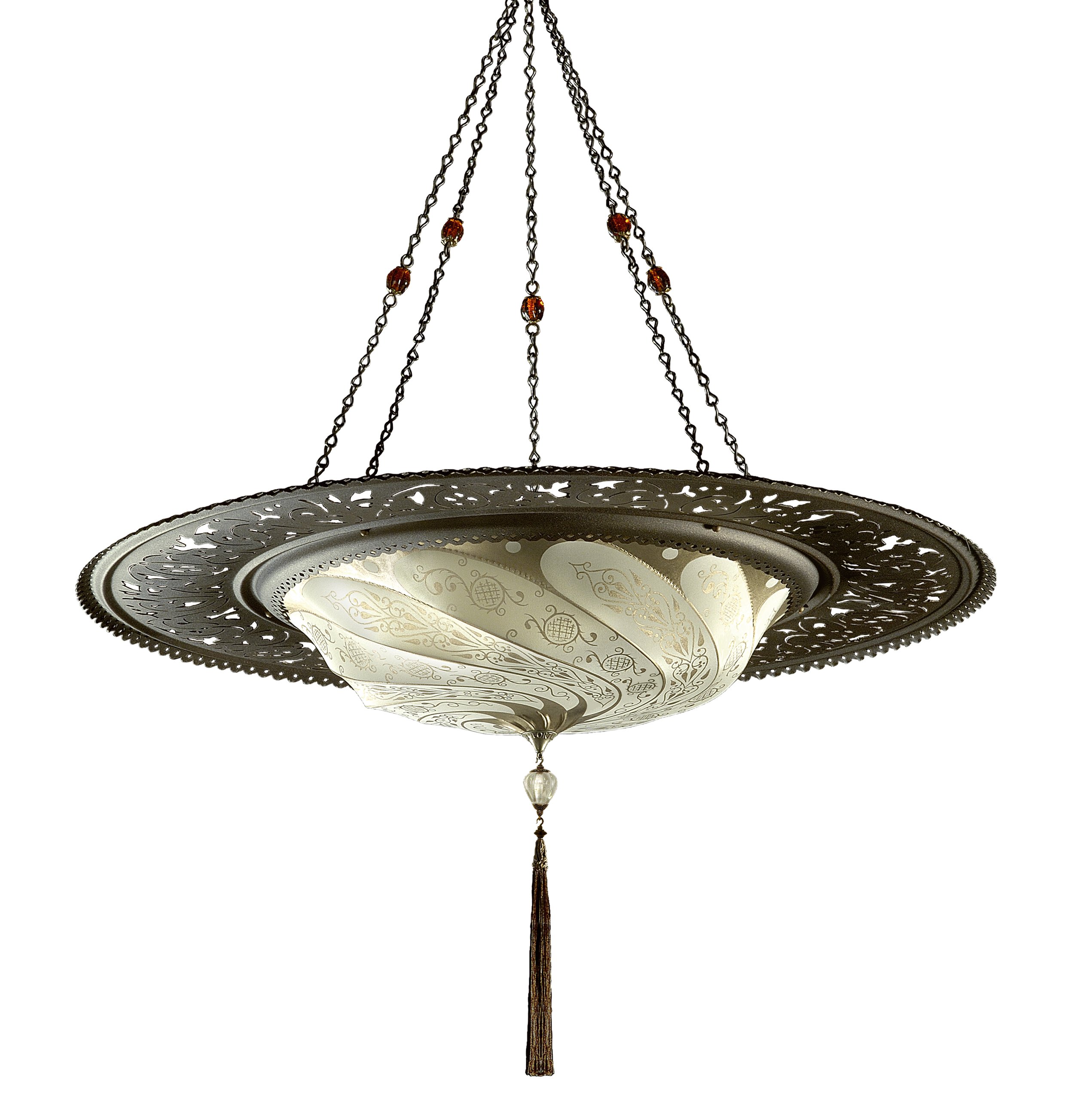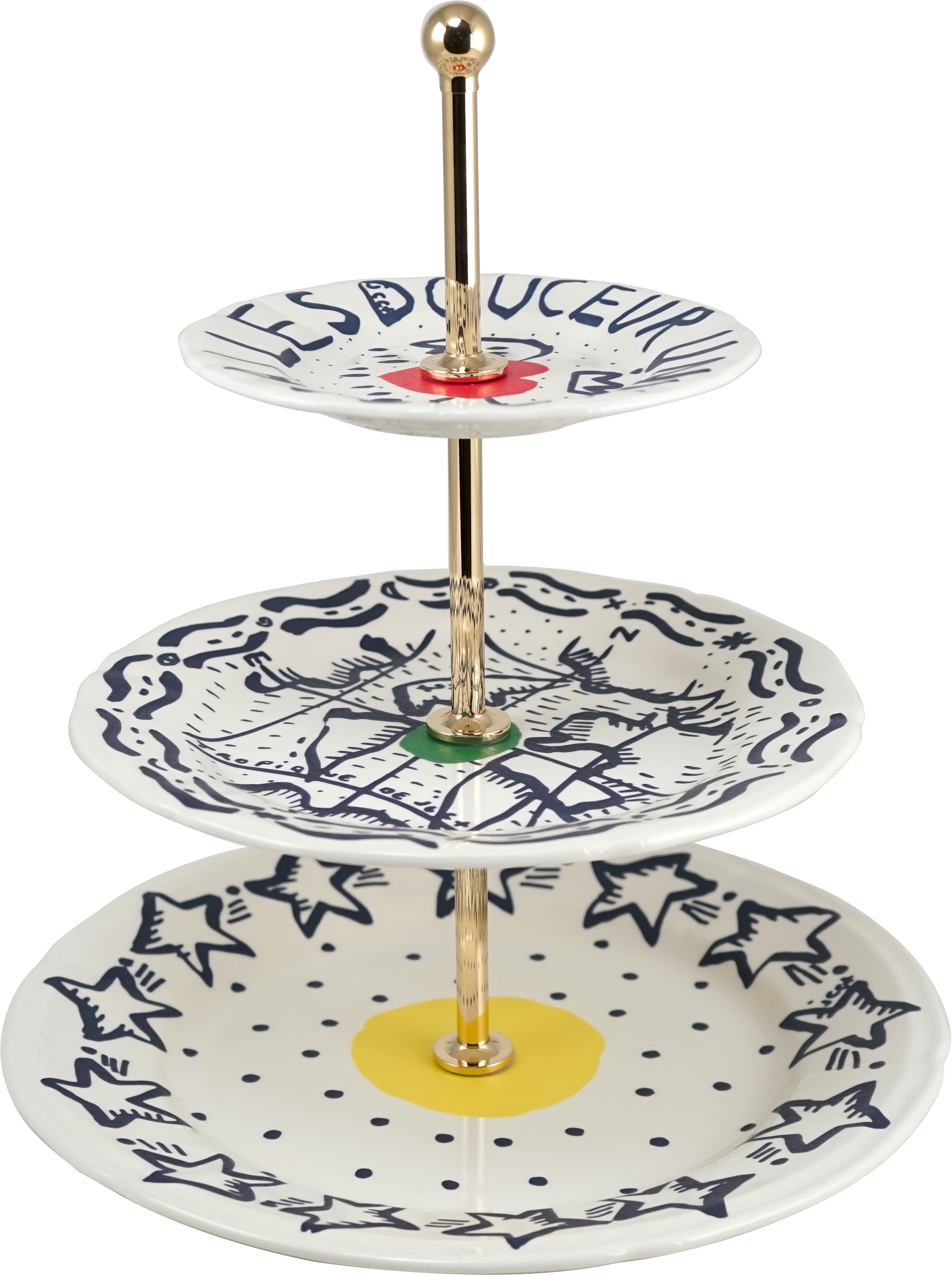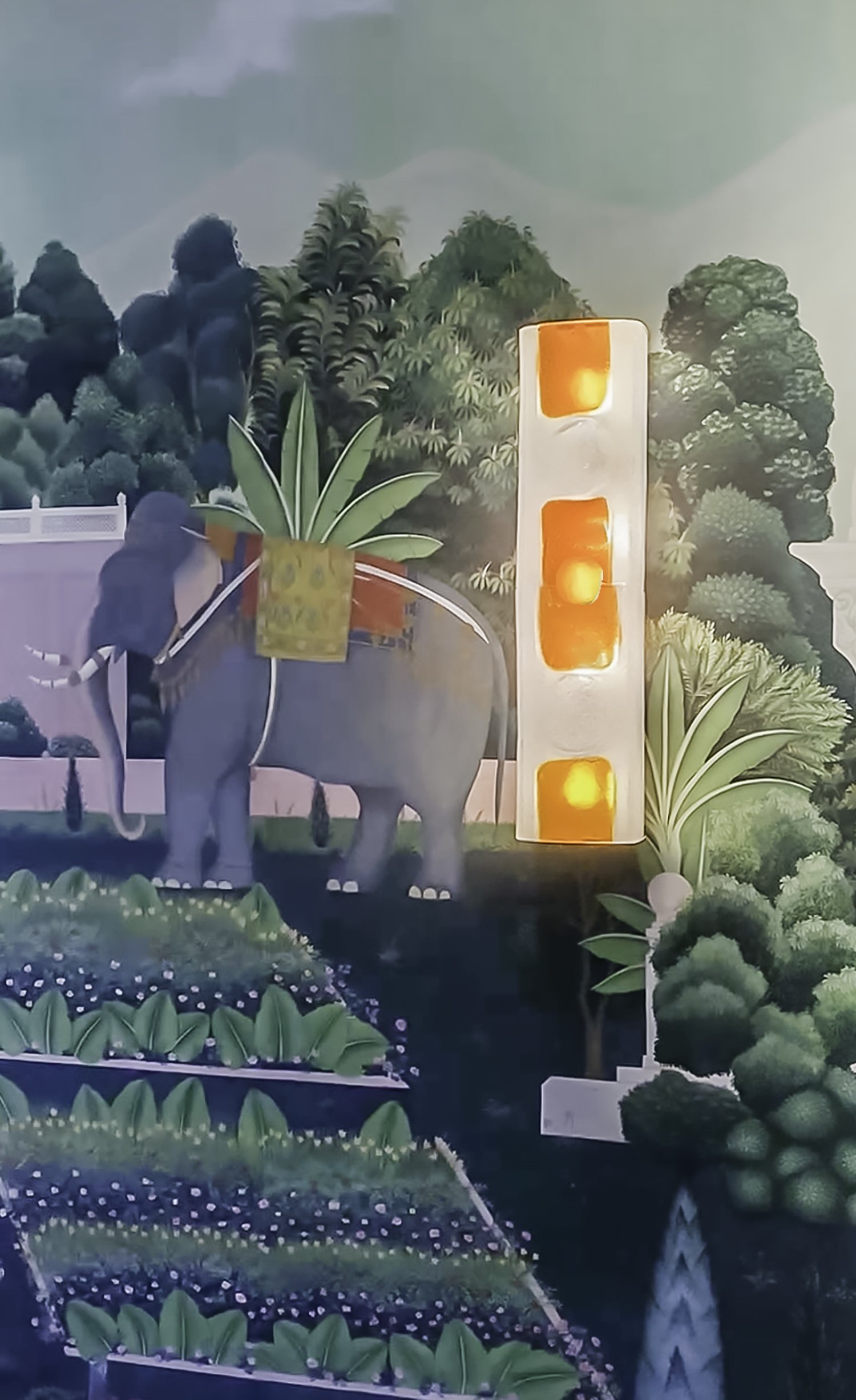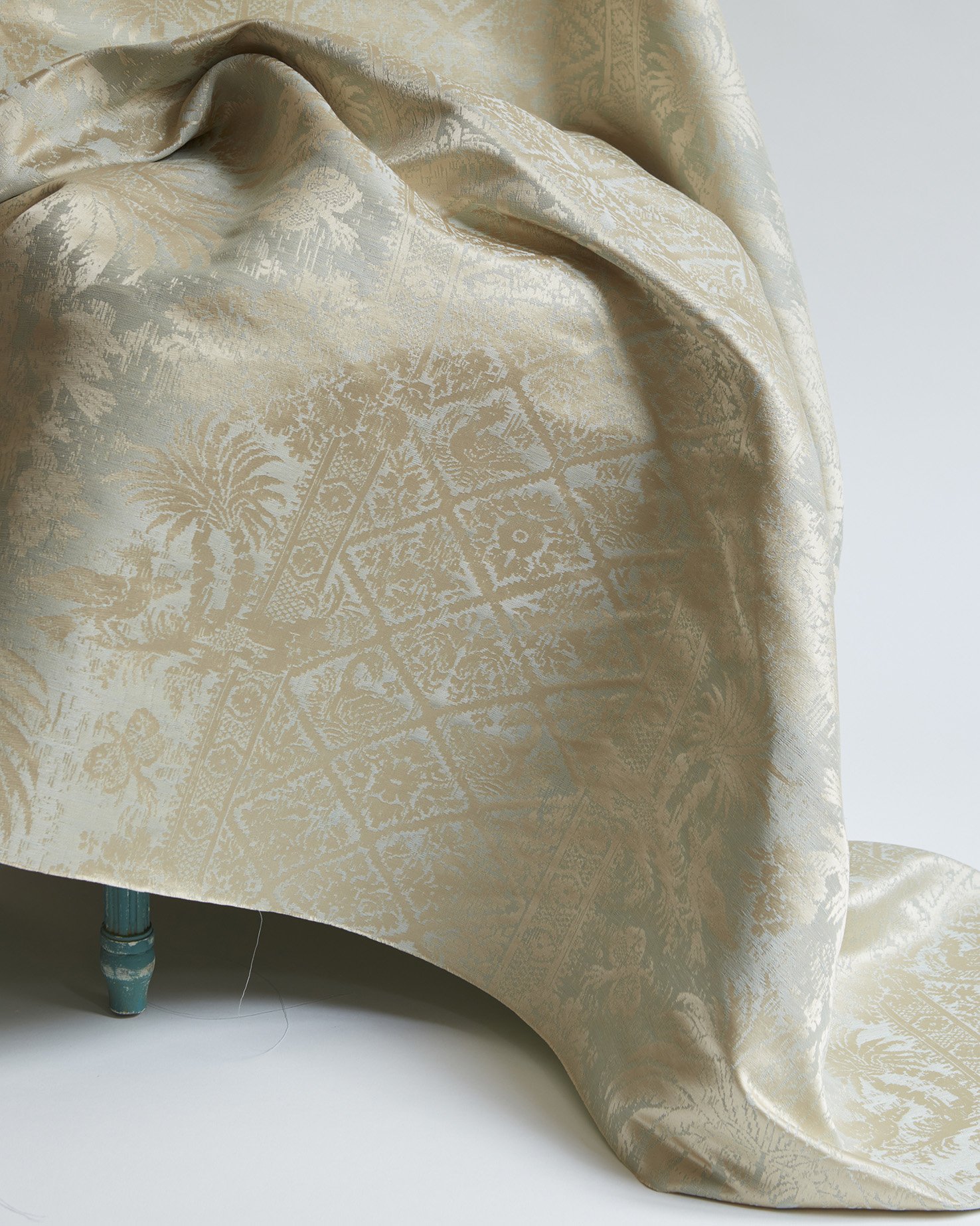DE RETOUR À PARIS DÉCO-OFF 2023
I made it a tradition to take a trip to Paris Déco Off in January of each year for a boost of creativity and inspiration in the months to come. The 13th edition of the acclaimed international Parisian event reunited again this year design professionals from across the world who came to see the latest editions from the most celebrated interior brands. More than 100 brands opened their showrooms doors on both, the right and left banks of the Seine to showcase their latest collections of wallcoverings, fabrics and passementerie. Whether elaborate or minimal, there was something for every taste.
Below are my picks that feature all-time favourites as well as some new names I discovered last month.
CMO Paris
Specialists of plant fiber, CMO Paris are dedicated to work the finest natural fibers with passion and traditional craftsmanship, metamorphosing them into exceptional materials through unique techniques of weaving. Whether it’s vetiver, abaca, buntal, palm leaf, water hyacinth, or Nepali hemp, these fibers are woven and magnified on handlooms by skilled craftsmen to create distinctive fabrics and wall coverings, revealing their delicate intrinsic beauty.
The plants are locally cultivated or responsibly harvested using methods that respect their ecosystems and the biodiversity of the area which in turn contribute to the preservation of the plant’s natural qualities. Here is a selection of their newest designs:
‘Hurricane Mural’ has a beautiful metallic iridescent sheen that complements the texture of oxidised brass or the intricacy of wood burls whose irregularities difuse a gold and silve shimmer.
‘Hurricane Mural’ - Bois marbré écaille ⓒ CMO Paris
‘Lueur d’Abaca Mural’ is a true marquetry work, meticulously woven in elaborate herringbone or diamond patterns. Very sturdy by nature, the abaca fibre is metamorphosed here in a refined and delicate surface with a subtle lustre.
‘Lueur d’Abaca Mural’ - Zèbre ⓒ CMO Paris
‘Lueur d’Abaca Mural ‘ - Square ⓒ CMO Paris
‘Soie Bois Mural’ is a surprising reinterpretation of silk that plays with volumes and texture. Here, the silk is combined with paulownia wood to create a visually striking three-dimensional artisanal marquetry. It is available in subtle and sophisticated coloursways such of bark, spruce, honey, dune, celadon and more.
‘Soie de Bois Mural’ - Losange Bleu Paon ⓒ CMO Paris
The stunning weaving texture of the ‘Symphonie de Soies’ emphasises the beautiful irregularity of hand-spun silk. The collection encompasses the metamorphosis of this noble and ancient fibre that is plaited, ribbed, bouclé or even worked to have the aspect of horsehair; a versatile fabric that can be successfully used for window treatments, lampshades or glass inclusion.
Setting with blinds in ‘Crin de soie’ Tabac ⓒ CMO Paris
‘Soie Ikat’ Tabac ⓒ CMO Paris
‘Tresse de Palmier’ reveals the palm leaf in a variety of traditional weaves executed with meticulous skill in the form of buri, rattan or canework. The harmonious paths through the humble coarseness of the palm leaf become intricate weaves that have been perpetuated over the centuries.
‘Tresse de Palmier’ canework ⓒ CMO Paris
Fromental X Marta Sala Éditions
“Oh! J’aime L’argent”
Makers of exquisite hand-painted and hand-embroidered wallcoverings using traditional methods, Fromental were present this year with new additions to their already established collections and a surprising collaboration with the furniture designer Marta Sala. Below are some of the newest creations launched at Paris Déco Off last month.
‘Babinda’ wallcovering in ‘Newton’ colourway - features a hand-painted and embroidered asymmetrical design in subtle shades of mauve and silver with hand-painted highlights in platinum on a delicate Pebble Silk background ⓒ Fromental
‘Goldoni’ velvet wallcovering in ‘Dawn Song’ colourway - a hand-painted and hand-tooled velvet for walls with soft apricot and blue tones, brushed with metallic paint and finished with silver embroidered French knots. ⓒ Fromental
The «Flamand» chair
Marta took as inspiration Fromental’s ‘Moderna’ tapestry - which was their debut into needlework, showcased at Paris Déco Off last year, to imagine the «Flamand» chair. With its elegant metallic frame and intricate wool and lurex needlework upholstery, the chair was the highlight of this year’s show.
‘Moderna” tapestry ⓒ Fromental
Fromental X Marta Sala Éditions - ‘Flamand’ chair with ‘Rain’ wallpaper; hand embroidered in silver and platinum threads on a soft ombré silk, background with gradual tones of taupe to natural ivory. ⓒ Fromental
The design of the armchair upholstery was inspired by the French abstract ceramics and tapestries of the 1960s and is available in two almost mirrored image designs and can be used as a pair or separately. Designed by Federico Peri - who received the Rising Talent Award at Maison & Objet 2018 and needlework by Lizzie Deshayes - who co-founded Fromental with Tim Butcher in 2005, the «Flamand» chair is an exceptional piece of collectable design.
C&C Milano
This year at Paris Déco Off, C&C Milano launched their new Iconica collection - an exciting selection of contemporary fabrics, suitable for both indoors and outdoors. The collection revisits the some of their classic designs, reinterpreted in innovative ways to create high quality weaves using advanced technologies.
Sofa upholstered in ‘Carrara Blanc’ - Pistache ⓒ C&C Milano
‘Sir Cardo’ - Carciofino pattern ⓒ C&C Milano
‘Sir’ - Pied de Poule pattern ⓒ C&C Milano
Niside, Driade and Ortigia propose new options for bedspreads: geometric and floral patterns in matelassé cottons, with a contemporary twist. Carrara and Carrara Millerighe are two heavy linen additions developed in bright colours, on a natural and ivory background, display a classic batavian weave and are intended for heavy use.
Bed cover in Nisida blanc optique ⓒ C&C Milano
Nisidia in Blanc optique ⓒ C&C Milano
New colourways were added to the’ Rua’ line which is a FR contract range rich in patterns: ‘Samurai’ display a geometric micro-pattern, ‘Safari’ ’s abstract lines are inspired by nature, ‘Pipistrello’ an animal motif, ‘Chopper’ and ‘Scooter’ with stylized botanical design and ‘Cerberos’, a timeless pied-de-poule.
ⓒ C&C Milano
Fortuny®
Fortuny® was founded in 1984 in Venice by the Venetian entrepreneur Lino Lando, with the aim to preserve and perpetuate the outstanding heritage and artistry of the Spanish artist Mariano Fortuny y Madrazo who has enriched the world of fashion and designwith his creations since the beginning of the 20th century.
The Birth of the Delphos Dress
Inspired by the Ionic chiton of the Auriga, a Greek sculpture discovered in Delphi in 1896, the iconic Delphos dress distinguished itself for its fine pleats and elegant shape which gracefully enveloped the feminine body. It quickly becomes a fashion symbol of the era, eulogised by Marcel Proust and worn by notable names such as Isadora Duncan, Eleonora Duse, Lili Guerlain and Peggy Guggenheim.
Vintage ‘Delphos’ dress on display as part of the ‘Jazz Age’ exhibition at the Cleveland Museum of Art, USA
ⓒ Tim Evanson via Flickr
Although Mariano Fortuny is generally considered the designer of the dress, he gave credit for the creation of the dress to his wife and muse, Henriette; on the patent he registered in 1909 for the Delphos dress, there was a note crediting Henriette as its creator. Today the Delphos dresses tailored by Fortuny have a label which is identical to the original ones made by the Spanish artist.
Fortuny bags ⓒ Fortuny
In their Parisian boutique at 6 Rue Bonaparte in Saint Germain-des-Près I was delighted to discover along the fashion collection, the stunning collection of lamps. The lamps are still hand made today using the same original methods that Mariano Fortuny used more than one century ago in his Venetian atelier of Palazzo Pesaro degli Orfei which is today the Fortuny Museum.
‘Icaro’ 3 tiers glass fibre gold leaf lamp © Fortuny
‘Cesendello’ silk lamp at Fortuny showroom in Paris © Fortuny
‘Fortuny_Scudo Saraceno’ with metal ring © Fortuny
‘Cesendello’ lamp in Silk. The Model wears the Delphos gown © Fortuny
‘The Studio 1907’ collection also revives Fortuny’s original designs that are still relevant to these days. The floor lamp has an adjustable shade that provides a glowing indirect and diffused light and is suspended on tripod structure that was designed by Mariano Fortuny in 1907.
‘Atelier© 63’ Floor Lamp - Studio 1907 collection © Fortuny
Fortuny ‘Atelier©’ at Paris Déco Off January 2023 © Fortuny
Fortuny® lamps can be specified for both residential and contract high-end interior projects, perfectly adapting to modern and classic styles, as well as to other different aesthetic and functional requirements.
Gien
Founded in 1821 by Englishman Thomas Hall, in Gien in the Loiret region - France, the Gien Faïencerie (French for pottery) quickly became well-known for manufacturing exquisite table services for the European aristocratic families and has perpetuated their craft along the centuries, always delivering products of excellent quality.
Their current collections revive classic themes or depict different captivating regions such as Sologne or the charming Loire Valley, Provence and Tuscany,
Toscana ⓒ Gien
Bagatelle ⓒ Gien
as well as themes inspired by famous places of France, rich in heritage and tradition: Bagatelle - famous for its Neoclassical pink château, Paris, the charming village of Giverny - creative retreat of the impressionists, or the idyllic Jardin du Palais illustrated by Maison Maison Pierre Frey. Worth mentioning here also the manufacture of the Parisian metro tiles, and a table service for the Orient Express.
Jardin du Palais ⓒ Gien
Gien were present this year with an exciting ceramic collection created in collaboration with the visionary fashion designer Jean-Charles de Castelbajac called “L’archipel sentimental” in which artist sees the table as «an ocean of conversation and emotions, of love and sharing, each object is an island, every plate is a poem».
Jean-Charles Castelbajac - ‘L’archipel sentimental’ ⓒ Gien
‘L’archipel sentimental’ ⓒ Gien
“L’Archipel sentimental” - three-tier cake-stand, coffee table “L’amour est fragile”, dinner plate ⓒ Gien
Gien become member of the prestigious Colbert Committe in 1989 and has been awarded the “Living Heritage Company” label .
de Gournay
De Gournay is a family-owned company founded in 1984 by Claud Cecil Gurney with his nephew Dominic Evans-Freke.
Celebrated for their enchanting collections of hand-painted Chinoiserie, Japanese & Korean wallcoverings and exotic Panoramic landscapes - inspired by the 19th century French scenics or the elegant Art Nouveau and the Art Deco styles, the brand continues to expand their creative and technical expertise in the creation of ever more captivating designs for walls, textiles and porcelain.
This year, their elegant showroom ar 15 rue des Saints-Péres in Saint Germain-des-Près was dressed in mesmerising hand-painted wallpapers from their new Mughal collection, which depicts themes reminiscent of the Mughal Empire, from ornate palaces and jewellery-adorned elephants to exotic landscapes.
Detail of the Malwa wallpaper design - Mughal Collection, Special Colourway on blue painted Xuan paper
Detail of the Malwa wallpaper design - Mughal Collection, Special Colourway on blue painted Xuan paper
The Mughal wallpaper at de Gournay showroom - Paris Déco Off 2023
In the twin salons of the de Gournay upstairs apartment, the walls were adorned with the new “Amami Waves” - a captivating abstract aquatic landscape inspired by antique Japanese fabrics and named after the Amami islands in the far south of Kagoshima Prefecture where the sea is known for its coral reefs and clear waters, and “Etienne” - a new whimsical hand embroidered wallpaper, inspired by a folding screen created in 1930 by Paul Étienne Saïn in 1930 and named after the artist – who received a Gold medal at the “Salon des Artistes Français” for the piece.
Detail of the hand-embroidered wallcovering in the twin salons of the upstairs apartment at 12 rue des Saints Pères
Detail of hand-embroidered wallcovering depicting the Diana monkeys installed in the de Gournay upstairs apartment at 12 rue des Saints Pères
Nobilis
Established in 1928 in Saint Germain-des-Près by Adolphe Halard, Nobilis is the design studio well-known worldwide for its quintesentially Parisian-chic collections of fabrics and wallcoverings, created with traditional expertise and technical innovation.
Their 2023 fabric collections on display in their showroom at 29 Rue Bonaparte during Paris Deco-Off, display whimsical designs on traditional weaves such as elegant tapestry and fine jacquards with a touch of contemporary. To these traditional weaves were added a variety of wide-width fabrics for curtains and three plain ranges made of natural materials.
ⓒ Nobilis
‘Chroma’ is inspired by different patterns re-discovered in the House’s archives that have been revisited to give them a city-dwelling and sophisticated signature.
‘Chrysler’ fabric - ‘Chroma’ collection ⓒ Nobilis
‘Loephelia’ fabric -‘Chroma’ collection ⓒ Nobilis
The 'Charivari' is an eclectic and colorful collection that comes in a multitude of textures.
‘Tampa’ fabrics - ‘Charivari’ collection ⓒ Nobilis
‘Kiosque’ upholstery -‘Charivari’ collection ⓒ Nobilis
'Rossini' is a damask with a rich decorative design directly borrowed from 17th-century fabrics.
The mercerized cotton warp is lightly mottled, revealing the tone-sur-tone pattern on classic colors according to the historical heritage of this fabric.
‘Rossini’ damask ⓒ Nobilis
The sumptuous Venetian style returns with 'Alexandria' - another rich damask that tells the story of journeys on the Mediterranean.
'Alexandria' damask ⓒ Nobilis
The collection of 'rayures et voilages XXL' comprises 15 sheer fabrics with different degrees of transparency depending on the material - linen, wool, or hemp, that also give a beautiful, subtle texture to the weave.
‘Belize’ stripe ⓒ Nobilis
‘Sven’ wooly tapestry displays stripes and motifs inspired by traditional Swedish kilim rugs - also known as Rollakan ⓒ Nobilis
“Blazer’ is a high-quality, elegant wool satin that was the highlight of the show this year. Named after the chic fashion item, ‘Blazer’ comes in a range of muted, intense, and theatrical tones, its finesse and density giving it an exceptional drape. Characterized by excellent resistance to abrasion and pilling, it is suitable for both upholstery and curtain use.
‘Blazer’ curtain and upholstery ⓒ Nobilis
The next edition of Paris Déco Off will take place from January 17th to 21st, 2024.
The Information point will be open during the show at
Hôtel Bel Ami
7/11 rue Saint-Benoît 75006 Paris
from 17 - 21 January 2024
from 10 a.m. to 7 p.m.
Until next year!




